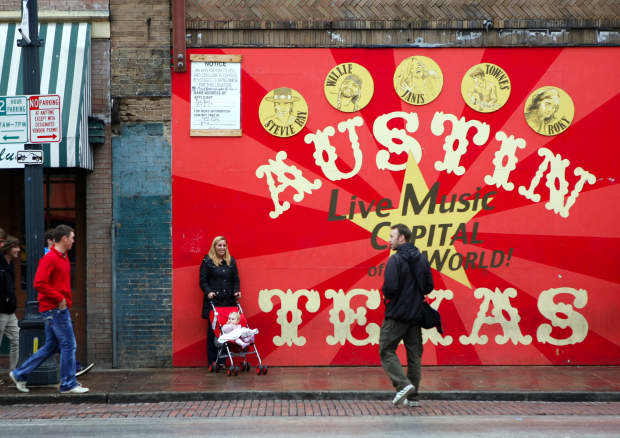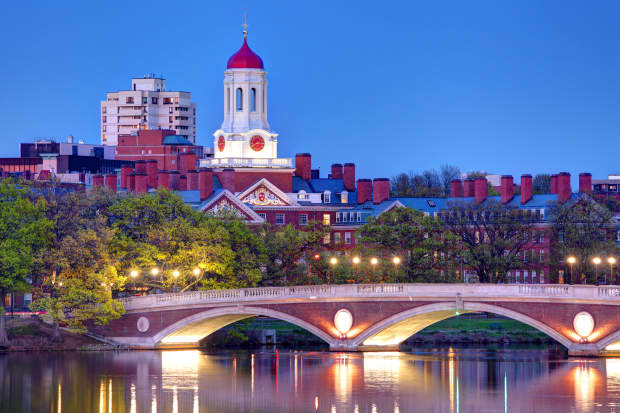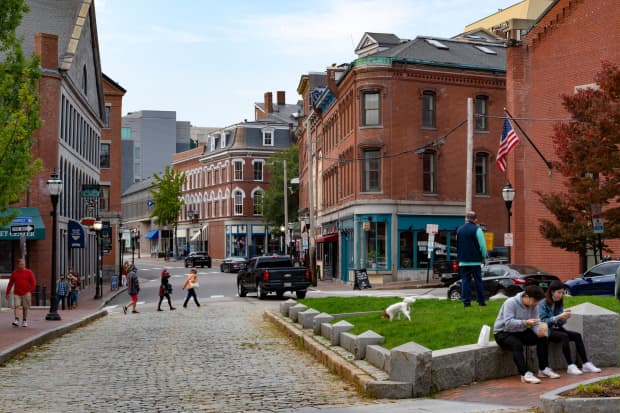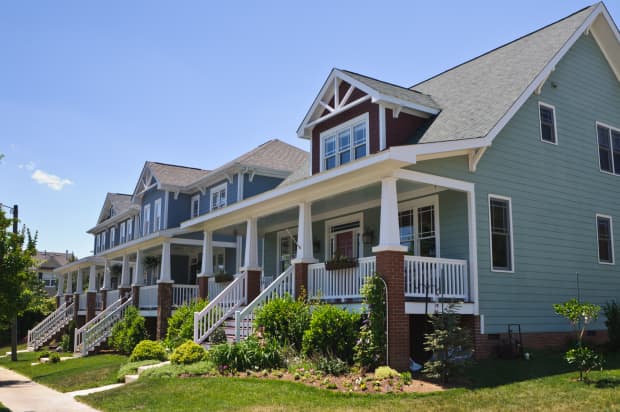This post was originally published on this site
Dear MarketWatch,
We are in our 40s and have two kids that are highly academically inclined, so we need to find an area with great schools. I can work from anywhere in the U.S., but my husband will need to be close to a metro area. My husband is a computer scientist. He currently works in the defense industry, but has a broad enough skill set that almost any metro area we have looked at has something relevant. It just gets a lot harder in smaller areas we like, such as Asheville or San Luis Obispo.
I am done with the suburbs. I want a small, liberal town or city with festivals, local culture, a walkable downtown and fun outdoor activities. We like four real seasons and make approximately $300,000 per year. I love San Luis Obispo but there isn’t enough industry for my husband. Where else should we look?
Sincerely,
Sick of the suburbs
Dear Suburbs,
What an exciting chapter in your family’s life. Change can be good for a family, and I love to hear that you’re considering this move with everyone’s needs in mind. It gives me confidence that wherever your family ends up, you’ll be in a place where each member is happy.
I’ve put together a list of locations across the country that I believe may fit your family’s needs, making use of the “Where should I retire?” feature created by my colleagues at MarketWatch. The tool is primarily targeted to retirees, but many of the options you can choose as your preferences are applicable to families at any stage of life.
As you endeavor on this search, I do want to offer one word of warning, at least where one of your top “wants” is concerned: Be prepared to research school districts on your own. You’re certainly not the first parent to want to keep their kids educational aspirations front-of-mind when searching for a new neighborhood to call home.
However, Realtors are generally barred from commenting on whether or not a school district is “good” or “bad.” That’s because such questions often can act as a coded way of talking about a given neighborhood’s racial and ethnic demographics. And a real-estate agent can violate fair housing rules by steering a family to one neighborhood over another on the basis of school district.

An aerial view of Northwestern University’s campus in Evanston, Ill.
Getty Images/iStockphoto
Chicagoland: Based on your list of wants and needs, I feel as though the suburbs of Chicago could be the right location for you. For starters, many of these towns and cities have some of the best school districts in the country, as ranked by educational search site Niche. Of the top five school districts in American, four were located in the suburbs of Chicago. And there would be ample opportunities outside the classroom for your children to enrich their education, thanks to the close proximity of major colleges like Northwestern University and the University of Chicago.
Plus, these towns are close enough to Chicago itself that your husband should find ample work opportunities with a short commute. And don’t worry, you won’t just find bedroom communities in the Chicago suburbs. And places like Naperville and Evanston have accessible, walkable downtown areas.

Austin is perhaps best known for its music scene and playing host to major festivals like South by Southwest.
Getty Images
Austin, Texas: The capital of the Lone Star State has another one of the best school districts in the country, the Eanes Independent School District, according to Niche. Yes, Texas is a more conservative state, but Austin is very much a blue dot in a red sea, so you’re certain to find many like-minded individuals there.
The city may not be the most walkable, but the city’s downtown has a thriving entertainment scene. It’s hard to find a restaurant without live music in Austin. Plus, the city places host to major festivals every year, including Austin City Limits and South by Southwest. It’s not the largest city in the state, but its thriving tech scene should provide ample job opportunities for your husband.

Harvard University’s campus can be seen along the Charles River in Cambridge.
Getty Images/iStockphoto
Cambridge, Mass.: The Boston suburb ranks among the 10 best cities to raise a family, according to Niche. It’s not hard to see why: The city offers an urban feel, with walkable stretches filled with bookstores, cafes and restaurants; and it has highly rated schools. Of course, you’re only a short subway ride away from downtown Boston and all the amenities that provides.
Plus, the proximity to major universities in and around Boston means there are ample educational opportunities for students to take advantage of outside of the classroom and during summer vacation. The one downside you might find is that it is fairly expensive, and home prices are only going up. If that’s the case, there are many other smaller towns and cities around the Boston area that offer similar amenities at a lower price point.

The Old Port section of Portland, Maine, features cobblestone streets, clothing boutiques and many bars and eateries.
Getty Images
Portland, Maine: The largest city in Maine boasts one of the country’s hottest real-estate markets — and that should give you a sense of how attractive of a place it is. The city has a gorgeous downtown area in and around the Old Port with cobblestone streets, gourmet food shops and bookstores.
The bordering town of Falmouth has the best school district in the state of Maine, as ranked by 24/7 Wall St. High school students can take classes at the University of Southern Maine, even earning college credits along the way. An added bonus: Portland is only a two-hour trip by bus or train from Boston, offering close proximity to an even larger metro area.

A new upscale neighborhood of single family homes near Raleigh, North Carolina.
Getty Images
North Carolina’s Research Triangle: You were right to think that somewhere like Asheville might not be the best bet for your family, but North Carolina could be a good landing place nonetheless. Instead, I would set your sights on the so-called “Research Triangle” in the Piedmont region, which includes the cities of Raleigh and Durham and the town of Chapel Hill.
The region got this name by being home to three major research universities: North Carolina State University, Duke University, and the University of North Carolina at Chapel Hill. There are many other smaller universities and colleges in the area, with academic talent being attracted by the region’s collegiate prowess. The region is a major hub for the high-tech and pharmaceutical sectors, with major employees in the area including IBM, Lenovo, Pfizer and GlaxoSmithKline.
Chapel Hill’s school district regularly ranks as the best in the state of North Carolina, with the district spending far more on average per pupil than other districts in the state. At the high-school level, the percentage of students who take at least one Advanced Placement class is double the national average.

